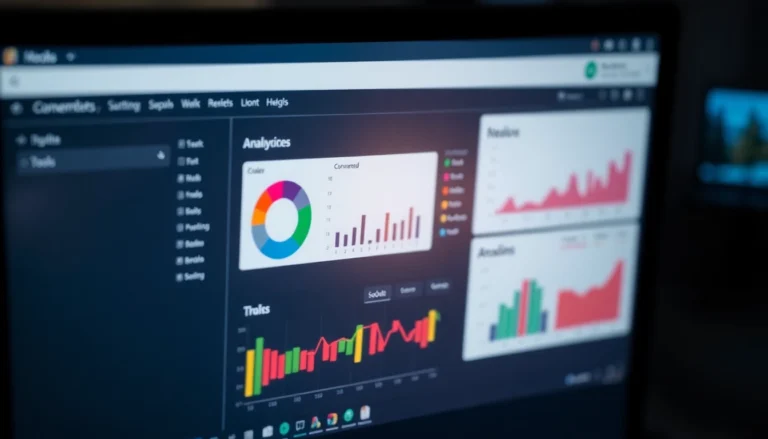
Understanding Container Rental: Types and Uses
Container rental has become an essential service across numerous industries, offering flexible, secure, and scalable storage and transportation solutions. Whether you need temporary storage on a construction site, mobile office facilities, or long-term storage for goods, choosing the right type of container is vital for operational efficiency and cost-effectiveness. With the UK market seeing substantial growth in container hire services, understanding the different types of containers available and their common applications can help you make informed decisions tailored to your specific project needs.
For a comprehensive overview of container options and to explore the possibilities, visit Container rental available now for diverse businesses and projects. This resource provides insights into container types, rental processes, and cost considerations, making it a valuable starting point for anyone considering container hire in the UK.
Different Types of Containers Available for Rent
Container rental services in the UK offer a broad spectrum of units, each designed to suit specific purposes. Below are some of the most commonly available types:
- Standard Shipping Containers: These are typically 20ft or 40ft in length, made from durable steel, and are primarily used for transportation, storage, and modular building projects. They are weatherproof and secure, making them suitable for transporting goods across long distances.
- High Cube Containers: Similar to standard containers but with increased height (usually 9.6 ft), offering additional storage capacity, ideal for bulky or voluminous items.
- Dry Storage Containers: Designed for general storage needs, these are all-steel units with no insulation, perfect for storing machinery, tools, and non-perishable goods.
- Refrigerated (Reefer) Containers: Equipped with temperature control, these are used in industries like food and pharmaceuticals where maintaining specific temperature ranges is crucial.
- Open-Top Containers: Featuring a removable roof, these containers are suitable for oversized cargo or bulky materials that cannot fit through standard doors, facilitating easier loading from the top.
- Flat-Rack Containers: These are used for project materials like machinery or construction elements that require easy loading and unloading from all sides.
- Specialty Containers: Customized options such as tunnel containers, offshore units, or conversions tailored to specific operational needs.
Each of these container types is available for flexible rental periods, ranging from short-term temporary solutions to long-term leases, accommodating diverse project timelines and budgets.
Common Applications Across Industries
Container rental serves a multitude of sectors, each utilizing containers for unique purposes that enhance efficiency and safety:
- Construction: Temporary site offices, secure storage for materials and tools, and mobile workspace units.
- Manufacturing & Warehousing: Extra inventory storage, overflow space, and portable workshops or laboratories.
- Events & Festivals: Temporary ticketing booths, equipment storage, and hospitality facilities.
- Agriculture & Food: Refrigerated units for perishable goods, storage for equipment, or mobile processing units.
- Transport & Logistics: Shipping of goods, modular transport units, or storage during transit.
- Emergency & Humanitarian Aid: Rapid deployment of secure, weatherproof storage in disaster zones or refugee camps.
Industries increasingly value container solutions due to their adaptability, durability, and ease of installation, making them vital in projects where quick mobilization and flexibility are required.
Choosing the Right Container for Your Project
Determining the appropriate container involves assessing several key factors to align with your operational goals:
- Purpose and Contents: Will you store sensitive or perishable items? Consider refrigerated containers for perishables or secure units with robust locks for valuables.
- Size Requirements: Analyze your storage volume needs. Opt for 20ft, 40ft, or high-cube containers based on volume and space constraints.
- Location and Accessibility: Evaluate how easily the container can be delivered and accessed on-site or at remote locations.
- Environmental Conditions: Consider weather exposure, temperature, and potential corrosion. For harsh climates, insulated or corrosion-resistant containers are preferable.
- Regulatory Compliance: Ensure adherence to UK safety standards and local regulations concerning storage, transportation, and site safety.
Consulting with a specialized container rental provider can provide tailored recommendations based on your project scope, budget, and timeline, ensuring efficient and effective utilization of rental containers.
How to Select a Reliable Container Rental Provider
Key Factors to Consider: Quality, Pricing, and Delivery
When choosing a container rental partner, focus on the following critical aspects:
- Quality of Containers: Look for providers offering well-maintained, certified units that meet industry standards (ISO, BS standards in the UK).
- Competitive Pricing: Obtain transparent quotations, compare costs per unit size, and inquire about any hidden fees.
- Reliable Delivery & Collection: Confirm that the provider offers scheduled, punctual delivery and collection services, especially for time-sensitive projects.
- Customer Support & Expertise: Trustworthy providers have knowledgeable staff to assist with site assessments, customizations, and after-sales support.
Benefits of Working with Local UK Providers
Opting for a local rental provider in the UK presents substantial advantages:
- Faster Response Times: Local providers can deliver and collect containers promptly, reducing downtime.
- Reduced Delivery Costs: Lower transportation expenses make rentals more economical.
- Knowledge of Local Regulations: Established experience with UK safety standards and legal requirements ensures compliance.
- Enhanced Customer Service: Personalized support tailored to regional needs enhances satisfaction and project success.
Assessing Rental Agreements and Flexibility
Before signing a contract, scrutinize the rental terms for flexibility and transparency:
- Rental Duration: Determine if short-term or long-term leasing options suit your project timeline.
- Extension Options: Check whether rental periods are extendable without penalty.
- Delivery & Collection Terms: Clarify specific dates, additional fees, and conditions.
- Damage & Insurance Policies: Understand coverage for damages, theft, or loss during rental periods.
- Terms of Use & Maintenance: Know responsibilities regarding container upkeep and damage reporting procedures.
A transparent, adaptable agreement ensures your project remains on track without unexpected financial or logistical disruptions.
Cost Optimization and Budgeting for Container Rental
Understanding Rental Pricing Structures
Container rental prices in the UK vary based on size, duration, and provider. Typically, rental costs are structured as:
- Flat-Rate Monthly or Weekly Fees: Based on the container size and rental period, with discounts available for long-term contracts.
- Per-Use or Pay-As-You-Go: Sometimes available for short-term or one-off needs, especially for smaller containers.
- Additional Charges: Delivery, collection, and optional services (such as modifications or insurance) may incur extra fees.
For instance, a typical 20ft container might cost under £60 per month for rent, with variations depending on location and provider. Always compare quotations and clarify what’s included to avoid surprises.
Additional Costs: Delivery, Collection, and Insurance
Operational expenses extend beyond rental fees:
- Delivery & Collection: Costs depend on distance from the provider’s depot, access restrictions, and container size. Some providers include this in the rental price, while others charge separately.
- Insurance: Protects against damages or theft during the rental period. While often optional, insuring high-value or sensitive contents is advisable.
- Site Preparation: Ensuring adequate ground conditions and access may incur additional costs.
- Regulatory & Permit Fees: Certain locations require permits for container placement, which could entail charges.
Factoring in these additional costs during budgeting helps prevent financial overruns and ensures your project remains economically viable.
Tips to Get the Best Value and Long-Term Savings
Maximize your investment with these practical tips:
- Plan Ahead: Secure rental agreements in advance to lock in rates and ensure availability during peak demand periods.
- Negotiate Terms: Discuss volume discounts, long-term contracts, or bundled services with potential providers.
- Choose the Right Size: Avoid oversized containers that increase costs unnecessarily; accurately assess your needs.
- Maintain Containers: Regular inspections and proper use extend container lifespan, reducing replacement costs.
- Opt for Local Providers: Reduce delivery costs and benefit from quicker service response times.
Best Practices for Secure and Efficient Container Storage
Proper Placement and Security Features
Effective storage relies on strategic placement and security measures:
- Site Selection: Choose flat, stable ground with convenient access to logistical routes.
- Security Measures: Use lock boxes, padlocks, and security fencing to deter theft and vandalism. Some containers come with built-in security features such as reinforced locks or alarms.
- Lighting & Surveillance: Adequate lighting and CCTV enhance security, especially for high-value contents.
- Environmental Protection: For sensitive items, consider insulated or weather-resistant containers placed in sheltered locations.
Maintenance and Inspection Routines
Maintaining container integrity prolongs operational life and prevents costly damages:
- Regular Inspections: Check for corrosion, structural damage, or security breaches at scheduled intervals.
- Cleaning: Keep containers free of debris, pests, and moisture to prevent deterioration.
- Damage Repairs: Promptly address identified issues to avoid escalation and maintain safety standards.
- Records & Documentation: Keep logs of inspections, damages, and maintenance activities for accountability and regulatory compliance.
Legal Regulations and Safety Compliance
Adherence to UK legislation ensures safe and lawful container storage:
- Permits: Obtain necessary planning permissions if placing containers on public land or in sensitive areas.
- Health & Safety: Follow guidelines for safe stacking, secure placement, and access provision.
- Environmental Regulations: Ensure waste disposal and contamination prevention measures are in place.
- Insurance & Liability: Maintain coverage for damages or injuries related to container use.
Partnering with experienced providers simplifies compliance, minimizing legal risks and safeguarding your project.
Implementing Container Rental for Business Growth
Case Studies and Success Stories
Numerous businesses across the UK have successfully integrated container rental into their growth strategies. For example:
- Construction Companies: Utilizing portable site offices and secure storage, leading to faster project completion times and better resource management.
- Manufacturers: Creating flexible inventory storage solutions that adapt to production cycles, reducing warehouse expenses.
- Event Organizers: Deploying temporary facilities that are cost-effective and time-efficient, enabling large-scale festivals or fairs with minimal setup delays.
Such cases demonstrate how strategic deployment of container rental can enhance operational efficiency, reduce costs, and support expansion initiatives.
Innovative Uses and Custom Modifications
Modern container rental services offer customization options that unlock new functionalities:
- Transformations: Converting containers into offices, retail outlets, or accommodations with insulation, ventilation, and electrical modifications.
- Branding & Aesthetics: Custom paint and signage turn containers into mobile advertising platforms or branded units.
- Multi-Functional Units: Combining storage, workspace, and amenities within a single container for multifunctional utility.
- Technological Integration: Incorporating solar panels, Wi-Fi, and security systems for remote or off-grid projects.
These innovations foster flexibility, operational sophistication, and branding opportunities for businesses seeking a competitive edge.
Future Trends in Container Rental Services
The container rental industry is evolving with technological advancements and market demands:
- Sustainable & Eco-friendly Containers: Use of recycled materials and eco-conscious manufacturing processes.
- Smart Containers: IoT-enabled units offering real-time tracking, condition monitoring, and remote management.
- Modular & Expandable Systems: Container configurations that can be easily resized or reconfigured for rapid deployment.
- Enhanced Customization: Tailored solutions for specific industry needs, including specialized safety features and aesthetic designs.
Embracing these trends allows businesses to leverage innovative, sustainable, and efficient container solutions to stay competitive and adaptable in a dynamic market.



